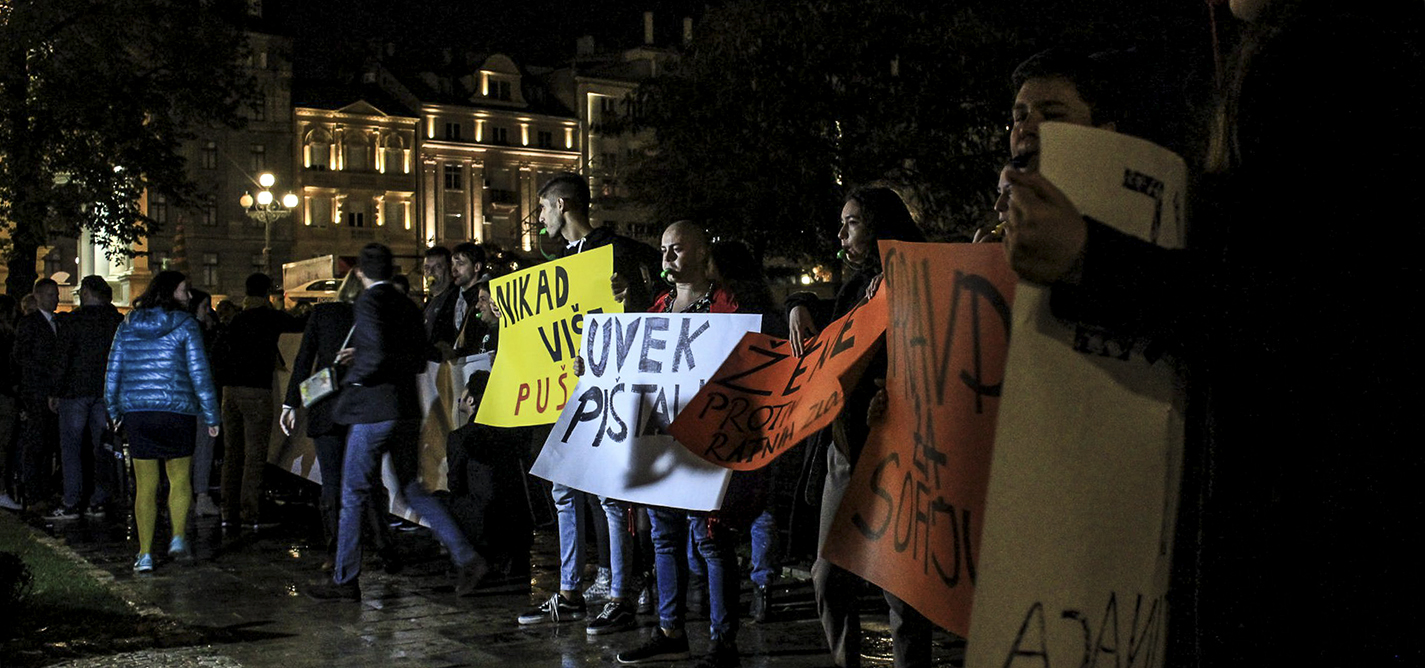
Youth Initiative activists will not be silenced
While war criminals take the spotlight, young protesters face hefty fines.

Sofija Todorović
Sofija Todorović is a program coordinator at Youth Initiative for Human Rights – Serbia, where she works with young people and coordinates regional activities. Her areas of focus include activism and implementing peaceful programs to address past conflict.
This story was originally written in Serbian.